The Trade Registry Down for a Full Week, its Head Resigns
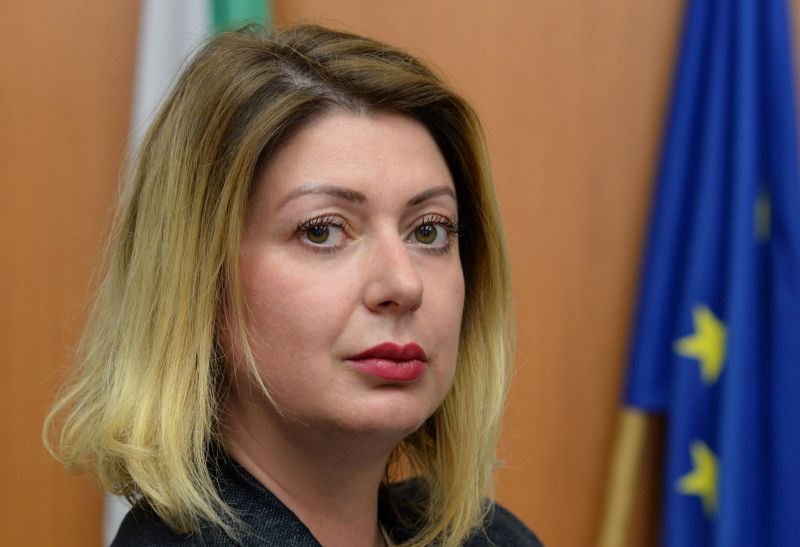
Zornitsa Daskalova
The head of the Registry Agency, Zornitsa Daskalova finally resigned on Friday amid the unprecedented crisis in the trade registry, which has been down a full week. Earlier this week she rejected the notion of resigning and was categorical that her role for resolving the crisis is crucial. PM Boyko Borisov hit a note to the contrary but assured that no changes in management will happen before the registry is back online. Afterwards Minister of Justice Tsetska Tsacheva also gave a clear indication that responsibility will be sought for the crash.
The public trade registry, which is managed by the National Registry Agency (which in turn answers to the Ministry of Justice), crashed last Friday and has been down ever since. The registry holds the documentation of all private companies registered in the country, as well as all non-profits as of this year. The registry is crucial for the operation of businesses: all deals, most transactions, including bank loans to firms, and reports must be recorded in the registry in order to be finalized. There is a real risk that companies might end up being fined because the suspension of the registry prevents them from fulfilling their legal obligations within the time limit provided by law.
It is still not clear when the registry will regain its full functionality. Some functions, inquiries via personal number – needed for finalizing car sales – has been restored, as well as a few others.
The reason for the crash is the apparent disk failure of four of the hard drives in the servers hosting the registry. The drives provide 25 TB of space for the registry. There is not yet an official report by the company providing the support for the server as to the extent of the damage or the status of the data.
The system is being supported by the company Lirex, which has been working with the agency since 2012. The annual fee for the support services is 90’000 leva.
Back-ups of the trade registry should be kept in two other places in case the main system crashes. The question now is how often were back-ups made and if there is data loss.
The head of the National Registry Agency (the body responsible for the trade registry) Zornitsa Daskalova promised the registry will be fully functional next week, although such a claim was made for this week as well. Commenting on the crisis she stated that “things like this happen” and assured that “manipulations or data loss are impossible.”
She couldn’t answer, however, in clear terms how often were back-ups made. Asked about whether one of the technical centers for data support – the one in Shumen - is working, she answered, awkwardly, “it should [?!] be working”. To the follow-up, requesting elaboration on the use of the conditional clause, she replied:
“Well, the trade registry is also working on paper, but it isn’t, is it.”
Over the last two years, the registry agency has opened public procurements for upgrading the registry totaling 8 million leva. The first project, valued at 2 million, is from 2016 and is part of the Good Governance Program of the European Commission. The procurement is awarded to the companies CNSYS PLC, the state-owned Information Services and the sole trader Alpha – Veselka Velcheva, which owns a beauty salon. Velcheva’s accountant told the investigative journalism site bivol.bg that she had nothing to do with upgrading the systems and that she was awarded 2300 leva for producing commercial materials. Zornitsa Daskalova has confirmed this.
A year later another public procurement procedure for 2,6 million leva is announced. CNSYS PLC wins this one as well. The procurement is for upgrades and expansion of the functionality of the registry. Immediately after that Telelink Business Services wins a 3,677 million leva procurement for expanding the registry’s disk array capacity. Daskalova explained that the upgrades have nothing to do with the system’s support.
Vice PM Tomislav Donchev took the opportunity to pitch the idea for a special center to be established whose purpose would be to store backup copies of all similar state systems. He did also suggest that “if we don’t want such things to happen anymore, we have to spend more money.” In his view, the crash of the system is due to sloppiness, not to ill intentions.
On Wenesday Daskalova announced she will not be resigning amid the unprecedented crisis with the trade registry but PM Boyko Borisov said there will be ‘changes’ at the agency’s top administration once the crisis has been dealt with. Daskalova’s resignation is now a fact but the crisis seems far from over.
Over the course of the week parliamentary opposition leader Kornelia Ninova also demanded the resignations of Daskalova and also of Justice Minister Tsetska Tsacheva.
Tsacheva herself gave an interview on Friday to bTV, which was the first time she has spoken publicly since the registry crashed. She was clear that there will be consequences for those responsible:
“Responsibility [must be] sought when Bulgaria has been without a trade registry for several days [although it’s been a full week]”, she said.
Meanwhile, on Friday morning the site of the Ministry of Justice also became unavailable. It is not certain yet whether the apparent crash was due to technical issues or is a result of a hacker attack. Mediapool contacted the ministry about the problem and was assured they are having technical difficulties but the site will be up by 1:00 PM; the site was online later that day, at 3:00, and no earlier than at 2:30 PM.
The Central Elections Commission Appeals Court’s Ruling on Providing Machine Voting Option to All
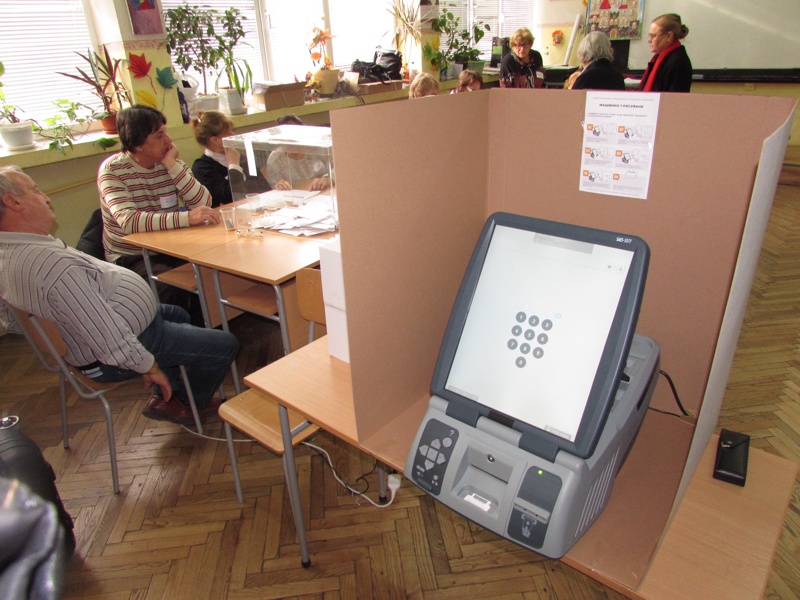
The Central Election Commission has submitted an appeal of the Administrative Court’s judgment, which requires the commission to implement machine voting in every voting section. The commission’s spokesperson Alexander Andreev announced the decision on Wednesday.
Sofia’s Administrative Court ruled on August 1 that the commission must install machines in every voting section within six months. The case was taken to court by Martin Dimitrov and Petar Slavov, members of the non-parliamentary opposition coalition Democratic Bulgaria. By law, the commission should have implemented machine voting fully before the last elections in 2017 but failed to comply.
According to the commission, this won’t be possible in the timeframe the court has specified. Last time the efforts failed due to only one company applying for the procurement to provide the machines, which won, but subsequently pulled out due to an inability to meet the deadline.
Following the most recent court decision, the commission would have to open a public procurement again, which the commission feels will inevitably reach the same outcome. Another reason the commission cites as impairing the process is the fact that while the commission must open the procedure and provide the outline for the call, including payment amounts, the Council of Ministers is the one providing the funds.
This is in the heart of the commission’s appeal: according to one Mediapool source, who is a member of the commission, “if we open a procurement procedure, a candidate comes forward, and we’ve announced a price of 10 million, for example, but then the council only provides 4 million, who will be to blame? The commission will, the one having no authority over the matter.”
In fact, the commission has many concerns about what is to be done besides the installment and use during the actual vote, which they will include in their thesis. There is no legislation or regulation in place to specify what to do with the machines outside elections: where and how to store and maintain them. Also, the law provides for machines to be present and functioning in all sections, which includes all sections in foreign countries. the commission feels that the resources needed to fulfill this requirement, including for sections, which open for a handful of voters, is enormously disproportionate.
Both members of the commission and government officials Mediapool spoke to maintain that the most reasonable course of action is for Parliament to amend the law and omit the articles about mandatory machine voting option in all sections.
As Mediapool reported in the recent past, the largest ruling party, GERB, is very keen on amending the Elections Act. The plans are not only to do away with the articles in question, but also those, which provide for e-voting to be available by 2019.
Given the next elections are due May 2019, there is not much room for a decent public debate on the Elections Act. But maybe that is exactly the point: pushing forward amendments in the eleventh hour, tailored to the wants and interests of the large parliamentary parties.
Bulgaria: Rampant Corruption, Flawed Justice System and Cozying Up to Russia

President of the European Commission Jean-Claude Juncker and bulgarian PM Boyko Borisov
The Brussels-based site euobserver.com published an op-ed this week by the chairman of the Paris-based Centre for Study and Research for Political Decision, Nicolas Tenzer, giving an overview of the political (corrupt) landscape of the country. He provides insights into many sectors where corruption is thriving, not least of which, the media sector. He asserts that precisely the fact that free press in the country is scarce is likely the reason why Bulgarians don’t often take to the streets - as Romanians do - to protest corruption.
The author makes a point about Parliament recently passing the so-called Peevski media bill, whose purpose is declared to be transparency of media ownership but at the same time neglects to provide for media owners to release information about bank loans, ads’ revenue or EU indirect funding, which are the primary sources and tools for influencing and corrupting the media.
Tenzer writes that Bulgaria’s “fragile banking sector (Bulgaria's fourth-largest bank collapsed in 2014), lack of transparency and rampant corruption make its integration into the Eurozone an unacceptably high risk”, talks about Bulgaria’s inclination to Russian influence and overall softness and reluctance to call out any Russian wrongdoing (including PM Boyko Borissov apologizing personally to Putin for the failure of the South Stream project, refusal to recall diplomats following the poisoning of ex-spy Sergei Skripal, etc), lack of independence of the judiciary, highly normalized petty corruption in Bulgarians’ everyday lives, and more.
The article concludes with the question “how long will the EU allow Bulgaria to walk this tightrope?”
NPP Belene Devours a New Million
The National Power Company, which recently reported 74 million leva in losses for the first half of the year, will pay 1 million leva for the NPP Belene project.
The government is seeking a strategic investor to restart the building of the plant, which was canceled back in 2012 by a previous government, also led by the current prime minister, Boyko Borissov. To date 3,5 billion taxpayers’ leva have been spent on NPP Belene.
Energy Minister Temenujka Petkova has until the end of October of this year to establish a procedure for selecting a strategic investor, and till the end of the year to start it.
It is very unclear and also rather unlikely that the project will actually be realized, yet the consecutive heavy chunk of public funding is neatly allocated.
Part of the new million is for assets and liabilities’ evaluation, given the government’s intentions of renewing the project and finding a new investor. Another is going to be allocated for maintenance purposes for the equipment, supplied by the Russian Atomstroyexport.
For the latter, the state company in charge of NPP Belene has invited Atomstroyexport to lead the technical teams to re-conserve the nuclear equipment. This task alone will cost 960’000 leva (excluding VAT), according to the procurement details, published on NPC’s website. There is no information what amount Atomstroyexport has requested, however. The procurement has been approved by the Public Procurement Agency, which means that a contract with Atomstroyexport will likely follow soon. The foreseen activities span to the end of 2020.
Ecology Ministry to Fine Dancers Who Danced in One of Rila’s Protected Lakes
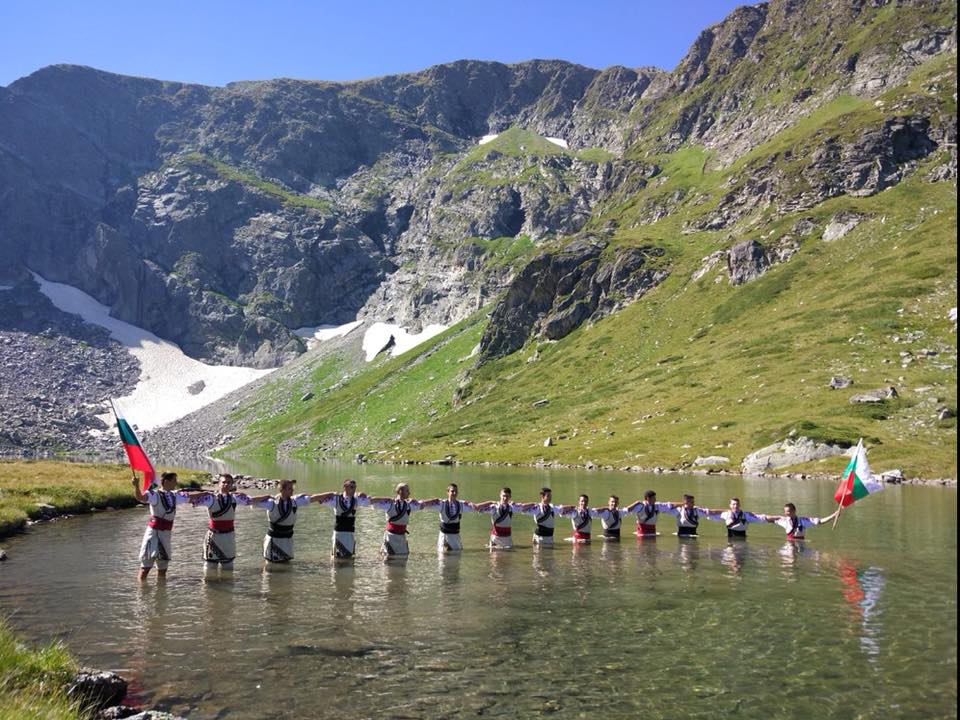
A group of dancers, organized by the foundation Our Home is Bulgaria were filming a clip about their attempt at a Guinness world record for a horo, a traditional folklore dance.
The dancers decided to go into one of the protected Rila lakes, which is strictly forbidden due to the very delicate ecosystem and extreme venerability to contamination the lakes have. Pictures posted by the group on social media provoked outrage among many. The group claims they had not known of the restrictions. Regardless, they will be fined and have assured that they will comply.
Ecology Minister Neno Dimov, who is a minister from the United Patriots’ quota, however, took an interesting spin on the matter. Asked about the incident (“an unfortunate [one]”), he not only downplayed it but almost dismissed it as child’s play, referring to the dancers as kids, which they are obviously not. After uttering a few sentences, whose apparent aim were to diminish the significance of the event, he quickly spun the question towards people camping on Koral (a camping site on the coast, one of the few remaining spots, especially in the southern part of the coast, not yet urbanized; something this government has repeatedly made clear it does not like).
“For me, though, there are two important issues: one is this violation, which the kids made, which surely is a violation, and the hate with which [this incident] was met with, especially given what is happening in Koral.”, he told NOVA TV.
He went on to list those ‘things’, apparently referring to a crisis at the Koral beach with garbage and its sudden use as a wasteland. He painted a gruesome picture of the campers there, citing what the mayor of Tsarevo had told him, and implying – as government officials often do – that campers are one of nature’s biggest problems in Bulgaria. While Dimov blamed the people camping at Koral for the crisis, implying that they had moved the trashcans out of the reach of the waste trucks, which collect the trash, ironically it was the campers who signaled the authorities of the problem.
In fact, most of the campers are eco activists, regularly protesting controversial government plans for construction projects in protected areas, and it seems no coincidence that they are part of in government officials’ regular talking points.
“We have to understand that when we have rights, we also have responsibilities. It can’t be that only one side has the responsibilities. It is obvious that the wasteland wasn’t created by the people going for a few hours to the beach. It is the doing of those who have set up their tents there and who take their cars there.”, Neno Dimov said.
The campers in Koral also submitted a plea to the local ecological inspectorate whether the fact that the trashcans are not being emptied is not a deliberate attempt to make campers look as polluting the coast.
Вие ни познавате. Нека го направим взаимно!
Отделете няколко минути за анкетата и ни помогнете да сме ви по-полезни.
За честна и независима журналистика
Ще се радваме, ако ни подкрепите, за да може и занапред да разчитате на независима, професионална и честна информационно - аналитична медия.
 1 коментар
1 коментар
Екипът на Mediapool Ви уведомява, че администраторите на форума ще премахват всички мнения, съдържащи нецензурни квалификации, обиди на расова, етническа или верска основа.
Редакцията не носи отговорност за мненията, качени в Mediapool.bg от потребителите.
Коментирането под статии изисква потребителят да спазва правилата за участие във форумите на Mediapool.bg
Прочетете нашите правила за участие във форумите.
За да коментирате, трябва да влезете в профила си. Ако нямате профил, можете да се регистрирате.

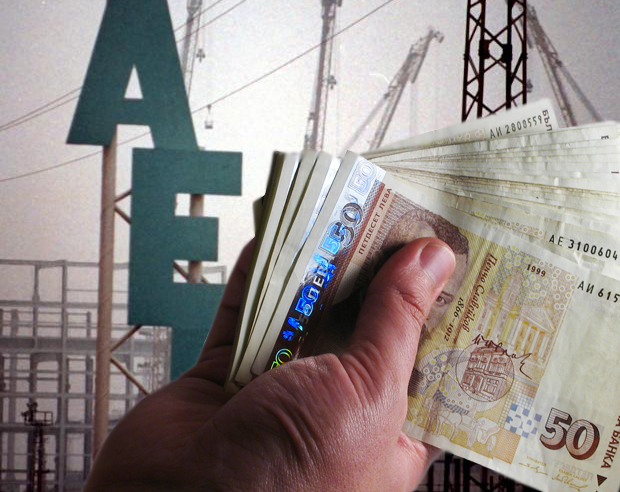

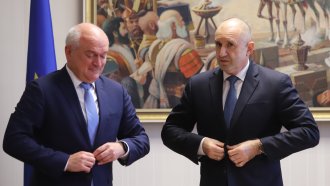


Медияпул, тоя номер да публикувате важна информация на английски е някаква иновация ли, що ли? Номера от селски вечеринки - ето, информираме ви и за лошите новини за Бг по света, но на език който възрастното население на Бг не ползва масово.Манипулатори!